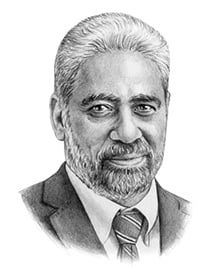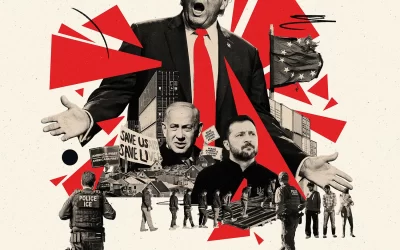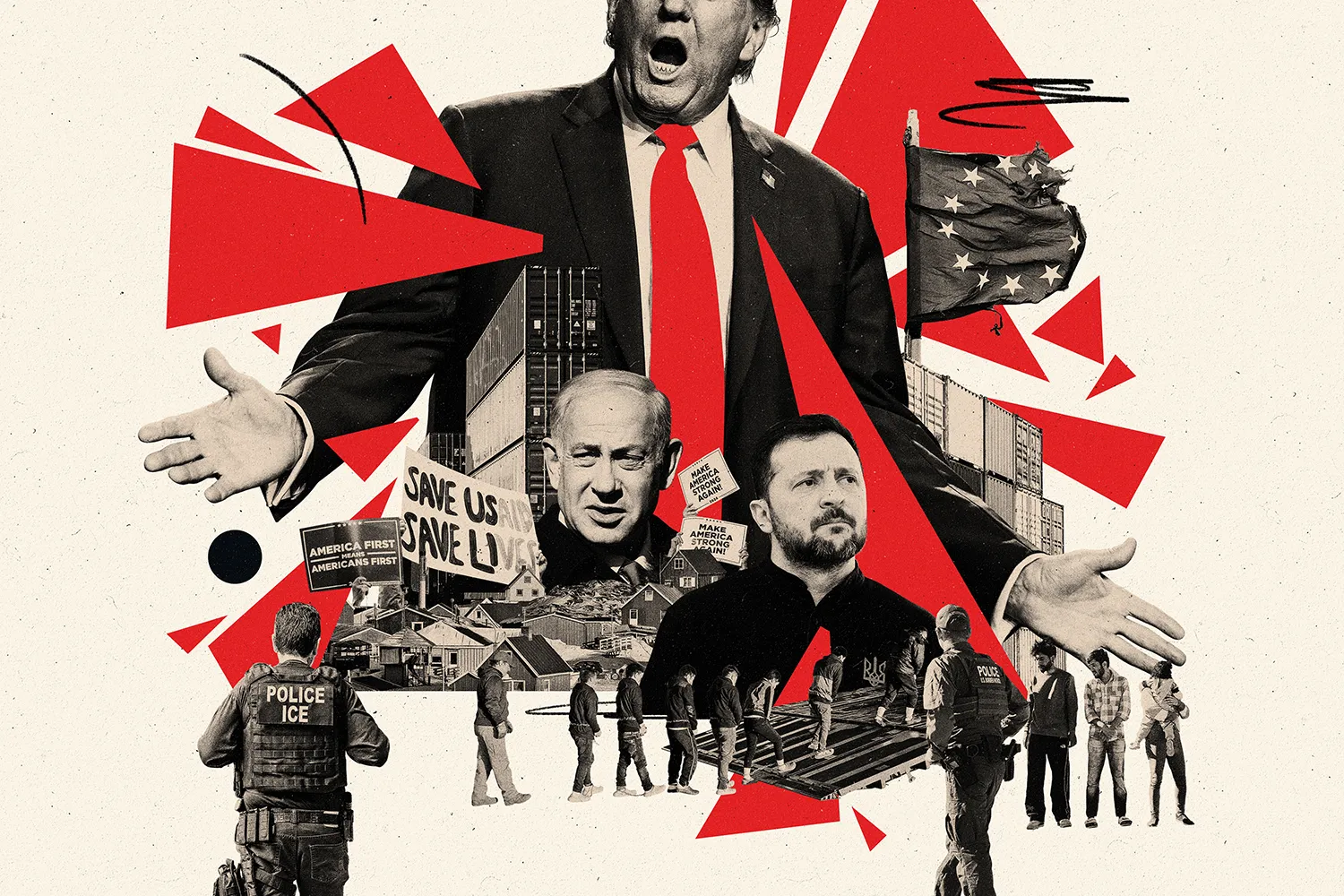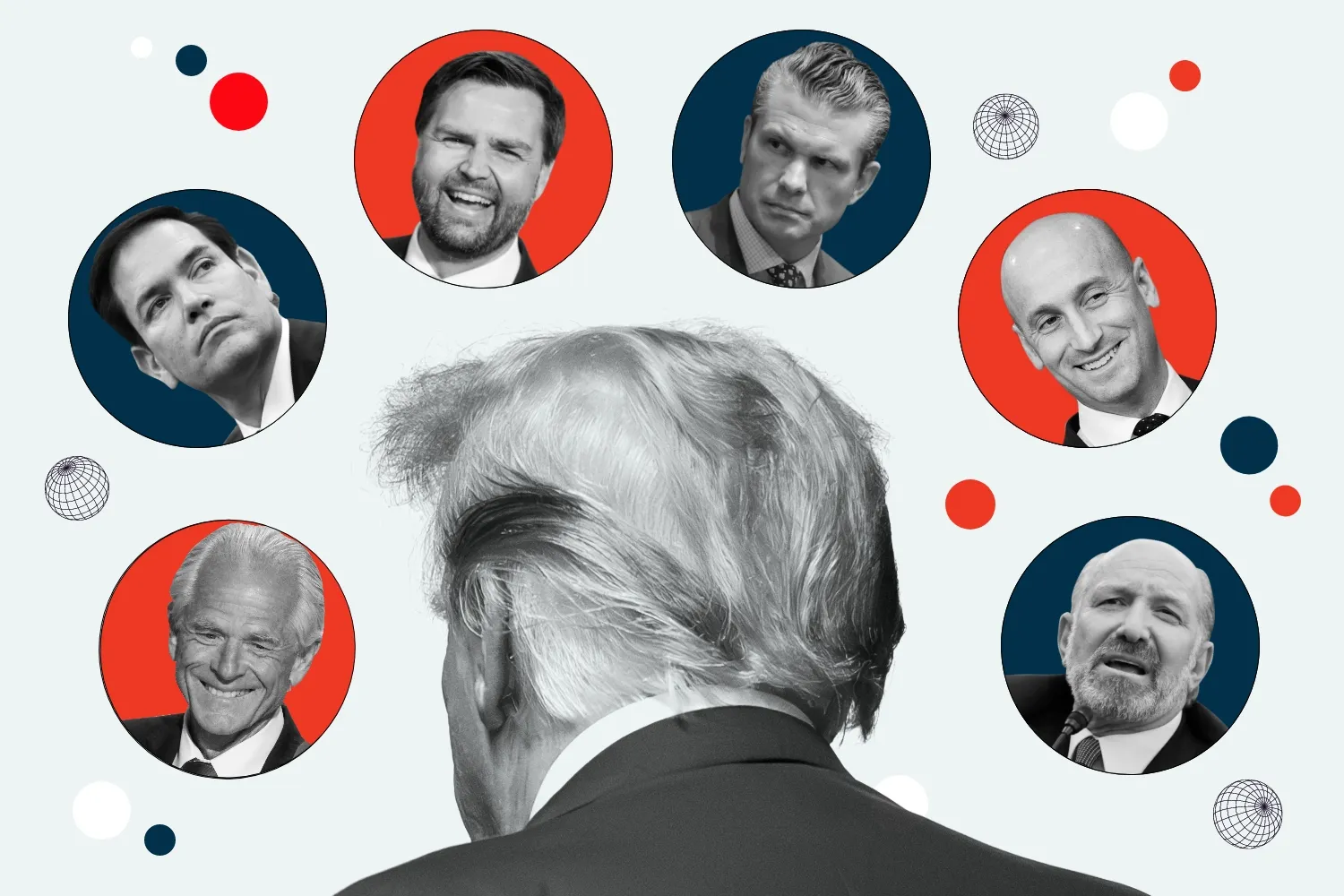It Has Become Asia’s War, Too

Zelensky greets Indian Prime Minister Narendra Modi at the Mariinskyi Palace on Aug. 23, 2024, amid the Russian invasion of Ukraine. It was the Indian leader’s first visit to the war-torn country. ROMAN PILIPEY/AFP via Getty Images
A significant new element in the Russia-Ukraine war has been Asia’s rising security profile in the heart of Europe. This includes China’s alignment with Russia, North Korea’s deployment of troops, and South Korea’s keener interest in the conflict since its rival got involved. New Delhi, criticized in the West for its reluctance to condemn the Russian invasion, tried to recalibrate its position by reaching out to Warsaw and Kyiv. But does any of this matter as U.S. President Donald Trump upends U.S. policy on Ukraine, Russia, NATO, and Europe? Will Asia’s role in the war and its resolution remain at the margins, or will it become more consequential? It will depend on how Washington and Europe ultimately deal with the conflict and Asia’s role in it.
The Biden administration promoted the idea of a strategic linkage between the European and Asian theaters—and encouraged Washington’s friends in the two halves of Eurasia to do more with each other. In response, Australia, Japan, New Zealand, and South Korea raised their engagement with European security and became regular observers to NATO. With Trump now washing his hands of Ukraine, downgrading NATO, and negotiating with Russia over European heads, he leaves these four Asian-Pacific allies terribly embarrassed. In New Delhi, there is a sense of vindication about its policy of not giving up on the Russian connection over the last three years.
A significant new element in the Russia-Ukraine war has been Asia’s rising security profile in the heart of Europe. This includes China’s alignment with Russia, North Korea’s deployment of troops, and South Korea’s keener interest in the conflict since its rival got involved. New Delhi, criticized in the West for its reluctance to condemn the Russian invasion, tried to recalibrate its position by reaching out to Warsaw and Kyiv. But does any of this matter as U.S. President Donald Trump upends U.S. policy on Ukraine, Russia, NATO, and Europe? Will Asia’s role in the war and its resolution remain at the margins, or will it become more consequential? It will depend on how Washington and Europe ultimately deal with the conflict and Asia’s role in it.
The Biden administration promoted the idea of a strategic linkage between the European and Asian theaters—and encouraged Washington’s friends in the two halves of Eurasia to do more with each other. In response, Australia, Japan, New Zealand, and South Korea raised their engagement with European security and became regular observers to NATO. With Trump now washing his hands of Ukraine, downgrading NATO, and negotiating with Russia over European heads, he leaves these four Asian-Pacific allies terribly embarrassed. In New Delhi, there is a sense of vindication about its policy of not giving up on the Russian connection over the last three years.
The United States’ Asian allies, who believed the Biden administration’s rhetoric on a rules-based international order and stepped up on Ukraine, now have to worry about the consequences in the Indo-Pacific that Trump’s strategic retrenchment will bring. Could Trump abandon Washington’s Indo-Pacific partners like how he has put the Europeans out to dry? Will Asian allies be asked to deal with the China challenge on their own?
On the surface, the joint statements that have so far come out of Trump’s engagement with Asian leaders, including Japanese Prime Minister Shigeru Ishiba and Indian Prime Minister Narendra Modi, suggest continuity in the Indo-Pacific strategy that began during Trump’s first term: stronger alliances and partnerships in the region as part of an effort to balance China. But Trump has repeatedly reaffirmed his desire for good relations with Chinese President Xi Jinping and continues to reflect the strong sentiment within the MAGA movement against taking responsibility for the security of others, let alone risk new wars.
And in a major flip of former President Joe Biden’s understanding of the security interdependence between Europe and Asia, Trump has signaled his interest in a triangular summit with Putin and Xi. Trump has also signaled his interest in encouraging China to play a role in ending the Russia-Ukraine war. Meanwhile, there is a sentiment in Europe favoring closer relations with Beijing to cope with Washington’s retrenchment. Next week, European Commission President Ursula von der Leyen will head to India with all 27 European commissioners in tow, another sign of rising European engagement with Asia.
What endures, though, is the new reality of Eurasian security interdependence. If the Biden administration framed this linkage at the start of the Russia-Ukraine war, Trump’s retreat three years later reinforces the prospect for the inevitable rejiggering of great-power relations within Eurasia.
This story is part of a collection on what’s next for Ukraine and Europe. Read the full package here.
C. Raja Mohan is a columnist at Foreign Policy, a visiting professor at the National University of Singapore’s Institute of South Asian Studies, a non-resident distinguished fellow at the Asia Society Policy Institute, and a former member of India’s National Security Advisory Board. X: @MohanCRaja
More from Foreign Policy
-

A security guard stands at the entrance to the U.S. Agency for International Development (USAID) headquarters on Feb. 3. DOGE Is Hacking America
The U.S. government has experienced what may be the most consequential security breach in its history.
-

A man with a beard in a suit and tie speaks behind a teleprompter. The logo for MSC is behind him. Vance Leaves Europe Gobsmacked
U.S. Vice President J.D. Vance delivered a rebuke on immigration and alleged censorship to a shocked Munich Security Conference.
-

A Palestinian girl carries a child through the rubble of houses destroyed by Israeli bombardment in Gaza City on March 3, 2024. Why Is the World So Polarized on Gaza?
The answer might be linked to race and colonization, explains author Pankaj Mishra, speaking on FP Live.
-

An attendee dressed like Uncle Sam waits for Donald Trump to arrive for a campaign rally at the Mosack Group warehouse on September 25, 2024 in Mint Hill, North Carolina. America Is Its Own Worst Enemy
It’s not unprecedented for a powerful country to simply shoot itself in the foot.







Join the Conversation
Commenting on this and other recent articles is just one benefit of a Foreign Policy subscription.
Already a subscriber?
.
Subscribe
Subscribe
View Comments
Join the Conversation
Join the conversation on this and other recent Foreign Policy articles when you subscribe now.
Subscribe
Subscribe
Not your account?
View Comments
Join the Conversation
Please follow our comment guidelines, stay on topic, and be civil, courteous, and respectful of others’ beliefs.
Change your username |
Log out
Change your username:
CANCEL
Confirm your username to get started.
The default username below has been generated using the first name and last initial on your FP subscriber account. Usernames may be updated at any time and must not contain inappropriate or offensive language.